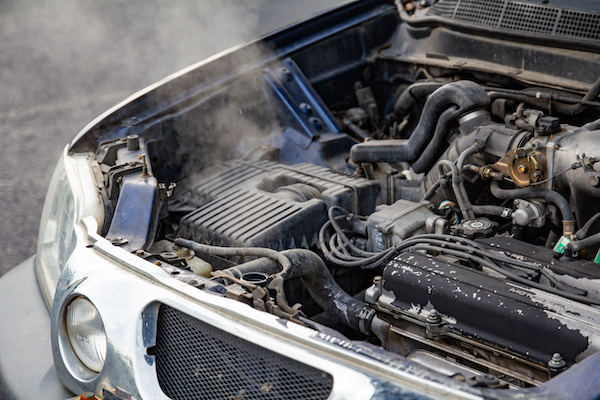
An overheating engine can be stressful, but you don't need to panic. Vehicles can overheat for many reasons, but so long as you act quickly, it needn't be a disaster.
The Warning Signs
The sooner you respond the better, so familiarize yourself with the most common signs of an overheating engine. These include:
- Steam or 'smoke' from under the hood
- The temperature gauge moving into the red zone or to 'H'
- Unusual odors – if you can smell a sweetish scent coming from the front of your car it may be leaking coolant, while a burnt odor may indicate an oil leak
If Your Engine Overheats
Here are the best steps you can take to stay safe and give your vehicle a great chance of recovery.
Crank up the Heating
It might seem counter-intuitive, but the best immediate action is to turn your heater on. This draws heat from the engine, giving you time to find a safe place to pull over. And if the AC is on, you should immediately turn it off to give the engine a break.
Wait
You'll need to pull over then wait for at least 15 minutes to let the engine cool. This might feel frustrating, but it's very important you don't open the hood until it's safe to do so. Not only could you easily get burned by an overheated engine, it can release scalding steam or water.
Use Coolant
Coolant can help protect your engine and prevent further overheating until you can get to a shop. However, be aware this isn't a fix-all and won't help in some cases, for instance if your coolant hose is clogged.
Visit an Auto Repair Shop Soon!
Even if your engine seems okay after stopping, you should always get it seen by a professional. If you're not being towed, carefully restart the engine after the steps above and keep a close watch on the temperature gauge as you make your way to the shop.
If you need engine repair, don't hesitate to give Robbie's At Your Service a call today!